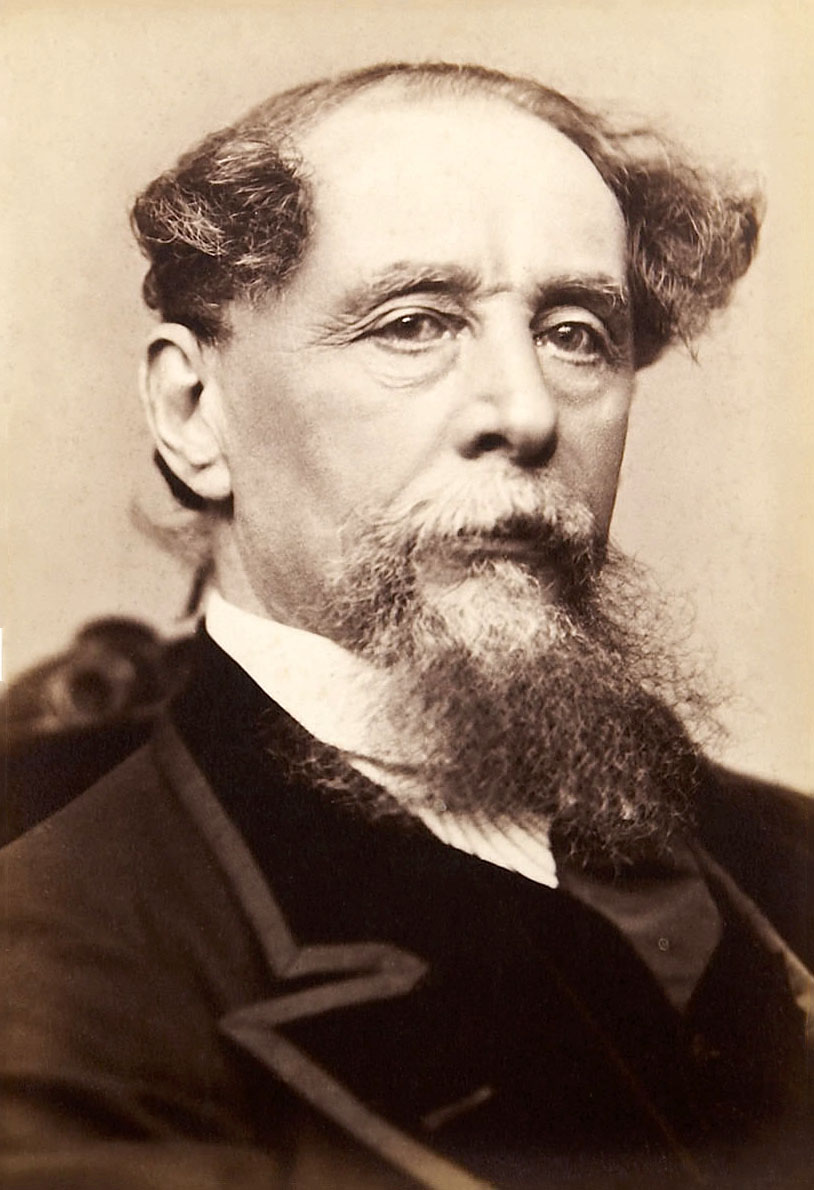Frases célebres de Charles Dickens
“Cada fracaso enseña al hombre algo que necesitaba aprender.”
Fuente: [Martín Cuadrado], Ana M.ª; Domingo J. [Gallego Gil], Catalina M. [Alonso García]. El educador social en acción: de la teoría a la praxis. Editorial Universitaria Ramon Areces, 2010. ISBN 9788480049832, p. 323. https://books.google.es/books?id=eWSnDAAAQBAJ&pg=PA323&dq=Cada+fracaso+ense%C3%B1a+al+hombre+algo+que+necesitaba+aprender.+Dickens&hl=es&sa=X&ved=0ahUKEwirn-b43O7gAhUxyIUKHUTzB0sQ6AEIODAD#v=onepage&q=Cada%20fracaso%20ense%C3%B1a%20al%20hombre%20algo%20que%20necesitaba%20aprender.%20Dickens&f=false
Frases de hombres de Charles Dickens
Charles Dickens Frases y Citas
“El hombre nunca sabe de lo que es capaz hasta que lo intenta.”
Fuente: [Amate Pou] (2017).
“El sol es débil cuando se eleva primero, y cobra fuerza y coraje a medida que avanza el día.”
Fuente: "Vieja tienda de curiosidades" - Charles Dickens
“Si no hubiera malas personas, no habría buenos abogados.”
Citas por obra, La tienda de antigüedades/The Old Curiosity Shop (1840-1841)
Original: «If there were no bad people, there would be no good lawyers».
Fuente: [Neely], Robert Donald (en inglés). The Lawyers of Dickens and Their Clerks, pp. 7, 26-7. The Lawbook Exchange, Ltd., 2001. ISBN 1584770910, 9781584770916. https://books.google.es/books?hl=es&id=P6VcYW39Pr4C&q=grovelling#v=snippet&q=grovelling&f=false En Google Books. Consultado el 2 de noviembre de 2019.
“Eran los mejores tiempos, eran los peores tiempos…”
Primera frase de la obra
Citas por obra, Historia de dos ciudades (1859)
Original: «It was the best of times, it was the worst of times...».
Variante: «No ha habido tiempos mejores ni peores;...».
Variante: «Érase el mejor de los tiempos y el más detestable de los tiempos; [...] la primavera de la [esperanza] y el invierno de la desesperación. Todo lo poseíamos y nada poseíamos».[Sin fuentes]
Fuente: [Anderson], Hephzibah (en inglés). «What are the best first lines in fiction?» http://www.bbc.com/culture/story/20191022-what-are-the-best-first-lines-in-fiction BBC Culture. Consultado el 30 de octubre de 2019.
Fuente: Historia de dos ciudades, 1859.
Fuente: [Dickens], Charles (trad. A de la [Pedraza]). Historia de dos ciudades. ALBA Editorial, 2016. ISBN 848428736X, 9788484287360. https://books.google.es/books?id=rmu-wk-lEgIC&printsec En Google Books. Consultado el 30 de octubre de 2019.
Fuente: [Dickens], Charles. Historia de dos ciudades. Penguin Random House Grupo Editorial España, 2010. ISBN 8420492124, 9788420492124. https://books.google.es/books?id=V5SF8y4lVpIC&pg En Google Books. Consultado el 30 de octubre de 2019.
Charles Dickens: Frases en inglés
“The civility which money will purchase, is rarely extended to those who have none.”
Our Parish, Ch. 5 : The Broker’s Man
Sketches by Boz (1836-1837)
"One Grand Tour Deserves Another" in All the Year Round: A Weekly Journal (27 December 1862) http://books.google.com/books?id=13VdAAAAcAAJ&pg=PA378
“We must scrunch or be scrunched.”
Bk. III, Ch. 5
Our Mutual Friend (1864-1865)
“He’s tough, ma’am,—tough is J. B.; tough and devilish sly.”
Fuente: Dombey and Son (1846-1848), Ch. 7
“If there were no bad people, there would be no good lawyers.”
Fuente: The Old Curiosity Shop (1841), Ch. 56
“I want to be something so much worthier than the doll in the doll's house.”
Bk. I, Ch. 55
Our Mutual Friend (1864-1865)
“Don't you be afraid of hurting the boy,' he says.”
Fuente: Bleak House (1852-1853), Ch. 22
“Fan the sinking flame of hilarity with the wing of friendship; and pass the rosy wine.”
Fuente: The Old Curiosity Shop (1841), Ch. 7
“Take nothing on its looks; take everything on evidence. There's no better rule.”
Fuente: Great Expectations (1860-1861), Ch. 40
The Fine Old English Gentleman (1841)
“Professionally he declines and falls, and as a friend he drops into poetry.”
Bk. I, Ch. 5
Our Mutual Friend (1864-1865)
“Your sex have such a surprising animosity against one another when you do differ.”
Fuente: Bleak House (1852-1853), Ch. 54, Mr. Bucket to Mademoiselle Hortense
“The one great principle of the English law is, to make business for itself.”
Fuente: Bleak House (1852-1853), Ch. 39
